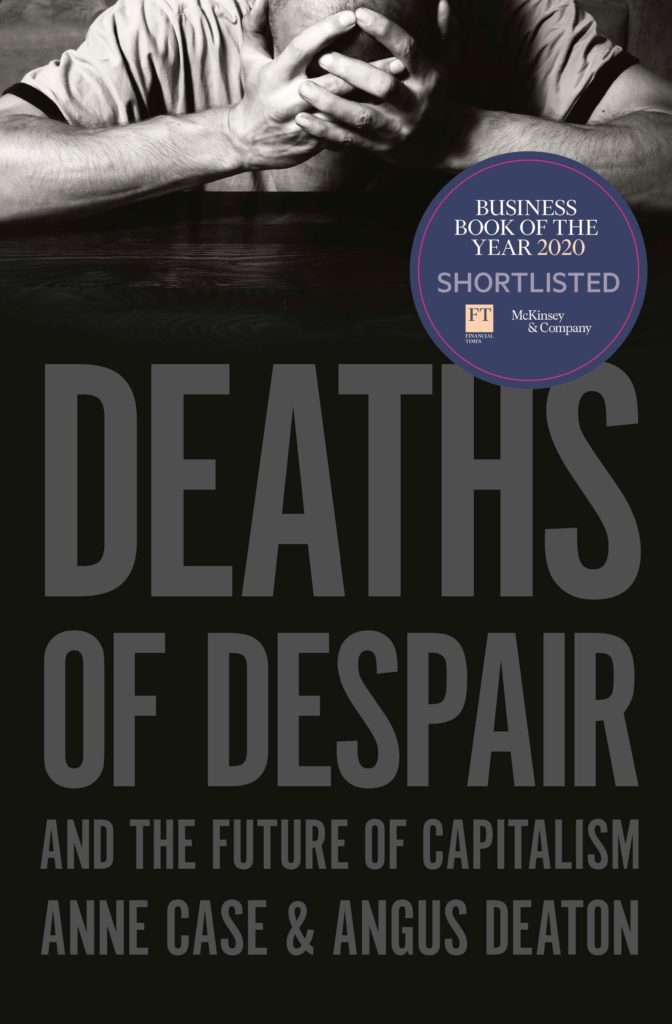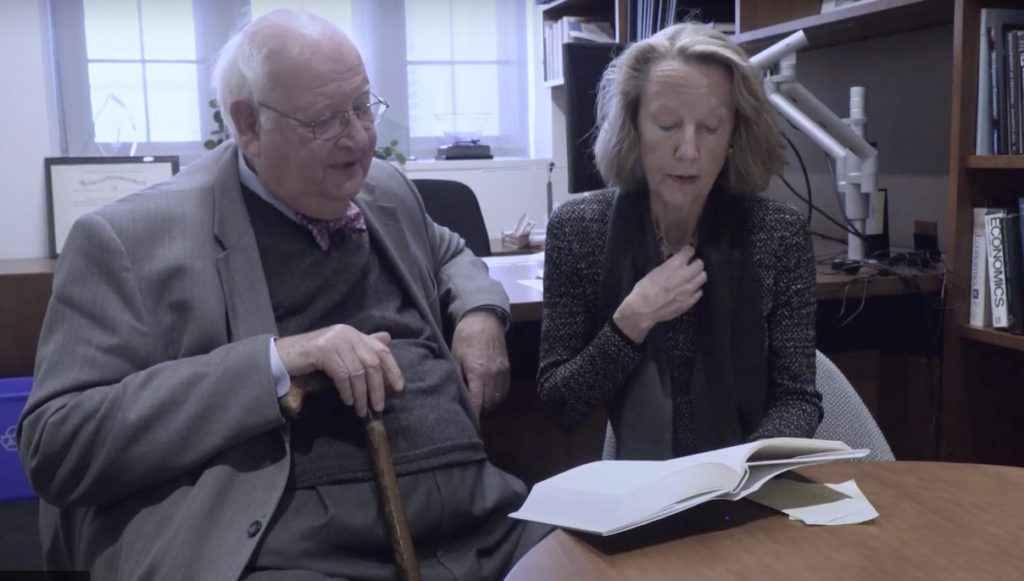By Kathleen Adamson, September 8, 2021

Deaths of Despair and the Future of Capitalism, Anne Case and Angus Deaton, Princeton University Press, March 17, 2020, 312 pp., $32.10
Now that the COVID pandemic is entering its 18th month, we can observe the larger ripple effects reaching out from its epicentre. The danger to human life from the pandemic is accompanied by danger from pollution and the effects of climate change- and we know, anecdotally and through official polling, that people, in general, are in a lot of pain. In the United States, this was the case even before the pandemic- reported levels of pain and emotional dissatisfaction have been rising for years. But what does it mean to be in pain? Why do Americans report higher pain levels than other rich countries? How does emotional pain translate into physical health outcomes? In this grim but enthralling book. Anne Case and Angus Deaton weave dense and difficult statistics into a narrative with rare clarity.
The “deaths of despair” referred to in the title are defined here as “accidental or intent-undermined poisonings (which are almost entirely drug overdoses), suicides, and alcoholic liver diseases and cirrhosis.” Case and Deaton present and break down the available data relating to these causes of death, looking at the impacts of race, economic status, and, in particular, level of education, on their prevalence. In general, deaths from these three causes have been rising in the United States since about 1999. American life expectancy has also declined at a rate that is incomparable to any other comparable country, like the UK, France, or Canada. No single factor is responsible for this, which Case and Deaton explain well. To oversimplify their presentation would defeat the purpose of the book- the detail and thoroughness of Case and Deaton’s presentation are a major part of its appeal. However, to explore the demographic details of the American misery crisis, they examine the opioid crisis, the horrors of American privatized healthcare, and the impact of outsourcing, both globally and within the United States. All these factors, and more, contribute to social fracturing, which makes it more and more difficult to maintain relationships, which further saps the resilience of a population.
One of the most important books of 2020, and well-worth highlighting as we enter year two of the pandemic, Case and Deaton’s work does a great job at explaining the way that demographic shifts affect people’s lives, presenting a difficult subject with compassion and care.
But the book is not merely a litany of misery. The policy recommendations in the final chapter are simple and intriguing. While their critique of the current American capitalist climate is specific and scathing, Case and Deaton are generally in favour of a capitalist system, if it is not “unfair”, as the current American system is deeply unfair. At a time when anything but total reform is seen as insincere, their suggestions would be broadly effective in improving many people’s lives. Deaths of Despair and the Future of Capitalism is an excellent read for anyone trying to connect the impacts of a broad range of issues and examine the interactions between public health and the economy.
You can hear Anne Case and Angus Deaton talk about the elements of Deaths of Despair in a 5-minute video produced by Princeton, right here.

Kathleen Adamson is a musician, composer, academic, and community activist based in Montreal, Canada.
More reviews by Kathleen Adamson
An excellent time to review Eternity Martis’ memoir of campus life August 31, 2021
Ivan Coyote: Bringing stories of fierce love and community building August 30, 2021
On Time and Water by Andri Snær Magnason made me feel better about climate, ‘if such a thing is possible’ July 21, 2021
Marcus Aurelius: No abstracted ponderer July 8, 2021
Information, the Book: Editors’ efforts have borne excellent fruit June 28, 2021
Hannah Arendt: Deeply influential 20th century thinker embodies contradiction, passion and a proximity to history May 23, 2021
Benjamin Miller: Very rarely does an author take political theory and interpret it with such relevance and clarity May 13, 2021